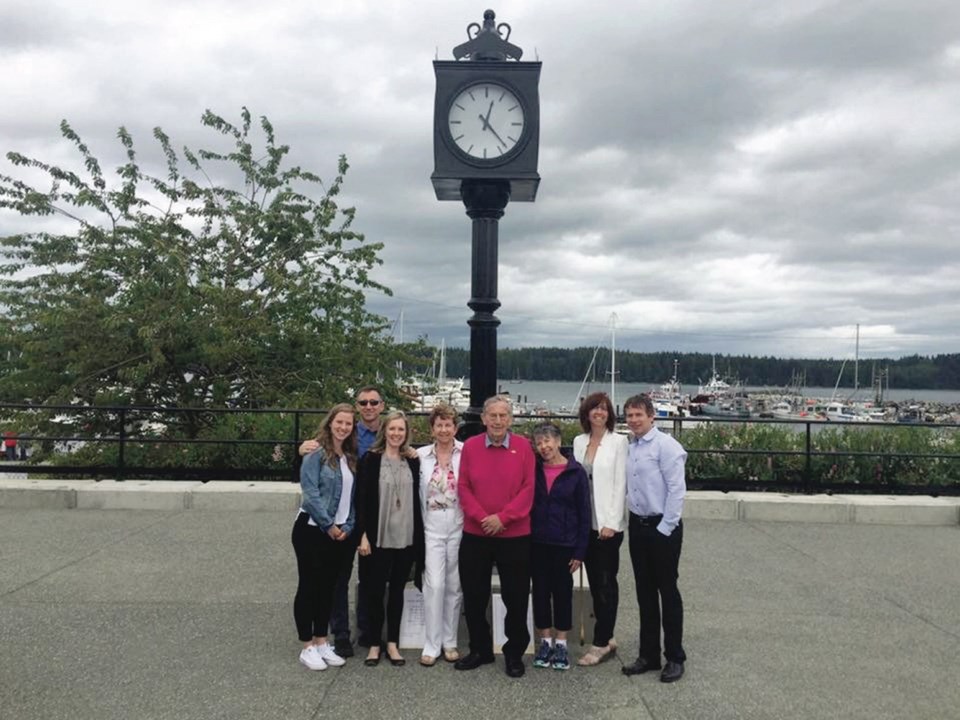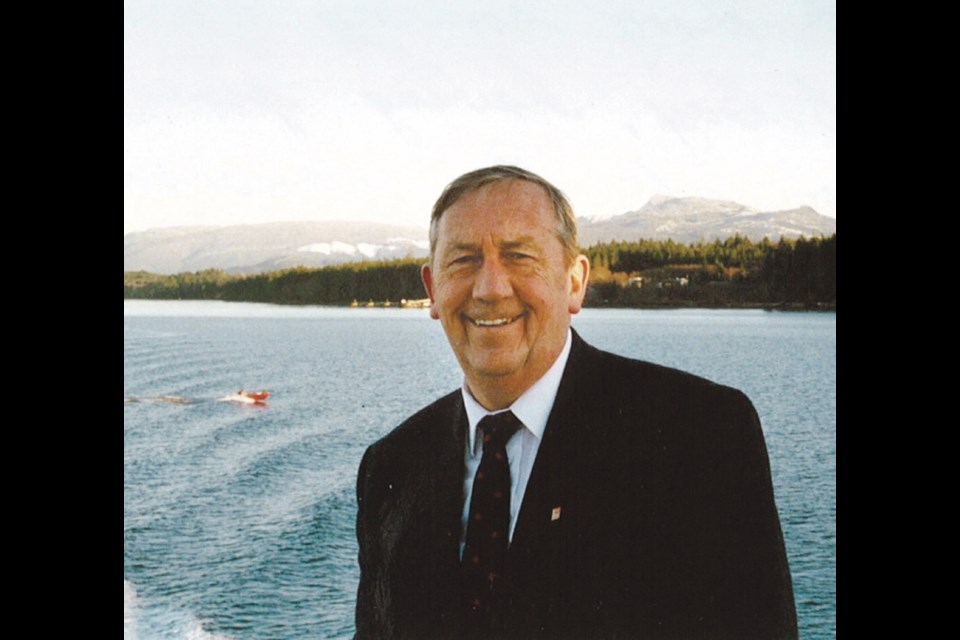Gerry Furney devoted his life to his adopted home of Port McNeill on northeastern Vancouver Island, where he used his sharp mind, seemingly endless list of contacts and Irish charm to advocate for B.C.’s resource-based communities.
His influence and public service extended beyond the borders of Port McNeill, which bills itself as tree-farming country and has a population of 2,064.
Furney died Monday at age 85 in Port McNeill Hospital with family by his side after a period of ill health. He leaves his wife Carmel, children Liza and James, and five grandchildren, all of Port McNeill.
Fellow citizens remember his soft voice with its Irish accent, his quick smile and his interest in everyone he met.
Furney was one of the country’s longest-serving municipal officials, tallying more than 40 years at the council table.
When Port McNeill was incorporated in 1966, Furney was among the first aldermen and later served as mayor for 36 years, retiring in 2014.
In the early days, council met in an old shed that had been skidded onto the beach and was reached via a plank, recalls Jim Craven, the community’s chief administrative officer at the time. The shed was shared with the new Mount Waddington Regional District, where legislation was crafted for the new agency.
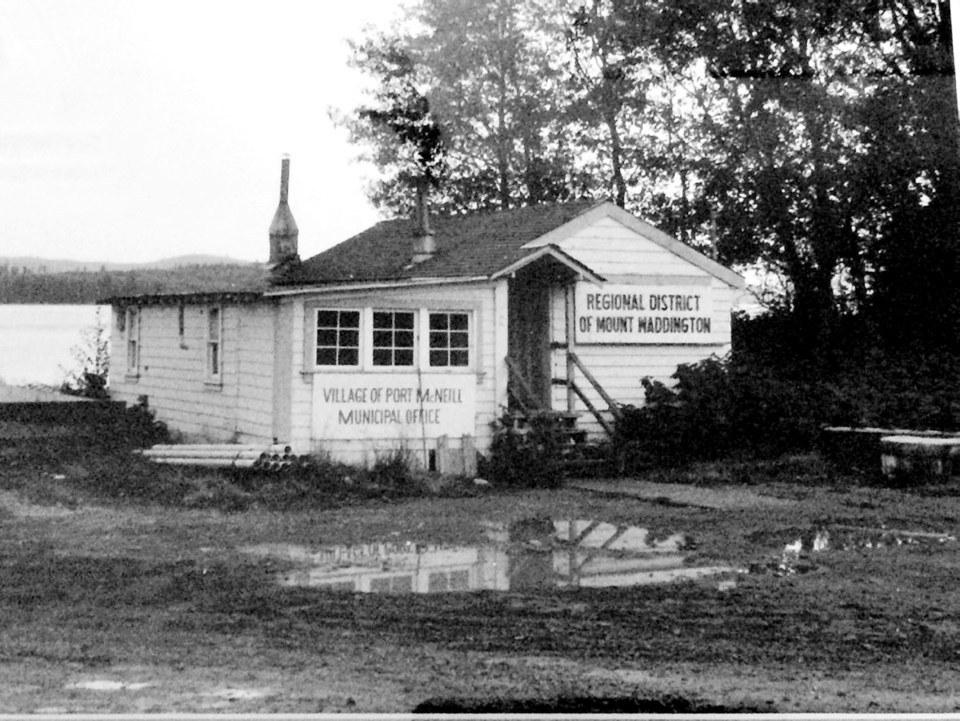
Furney was a founding director of the district, and served as its chairman for a decade.
He was also founding president of the Port McNeill Chamber of Commerce, where Furney said: “We had a mantra — ‘We can make a community of this place,’ ” said an article written by Brian Kieran.
That belief spurred his decades-long efforts to establish a stable and diverse economy that provided well-paying jobs that supported families in Port McNeill.
He was relentless in his fight for road improvements to Port McNeill, which for years was accessible only by ferry or dusty logging roads that were closed when the trucks were operating. Furney maintained that transportation was the key to attracting development and tourists.
Furney could charm just about anyone, said former Port McNeill mayor Shirley Ackland. “He loved people and he really listened and he was interested in what you had to say.”
But he was not keen on personal recognition, refusing a big send-off when he retired, Ackland said. “He was not a photo-op guy.”
Port McNeill Mayor Gaby Wickstrom describes Furney as “larger than life, approachable and kind; a community leader.
“He was such an integral part of Port McNeill’s history, it’s hard to imagine him not seated at the coffee-shop window, chatting and smiling at passersby.”
Born on Aug. 7, 1933, Furney grew up in a rowhouse on Ballyhooly Road in Cork in the south of Ireland. He and his brother James were known as the “boldest boys on Ballyhooly Road,” son James Furney said.
It was a happy life, but there wasn’t a lot of money. The boys did not wear school uniforms like fellow students because the family couldn’t afford them.
After graduation, Furney worked in the audit section of a local Ford plant. “He was a fairly bright fella. He took to math,” James said.
Furney moved to London for work but adventure called. In 1955, Furney and a friend sailed to New York, hitchhiking out of that city on their way to Toronto.
They crossed the continent after being hired to drive used cars to Vancouver, even though they did not have driver’s licences, James said. They drove around a parking lot the night before departing to practise.
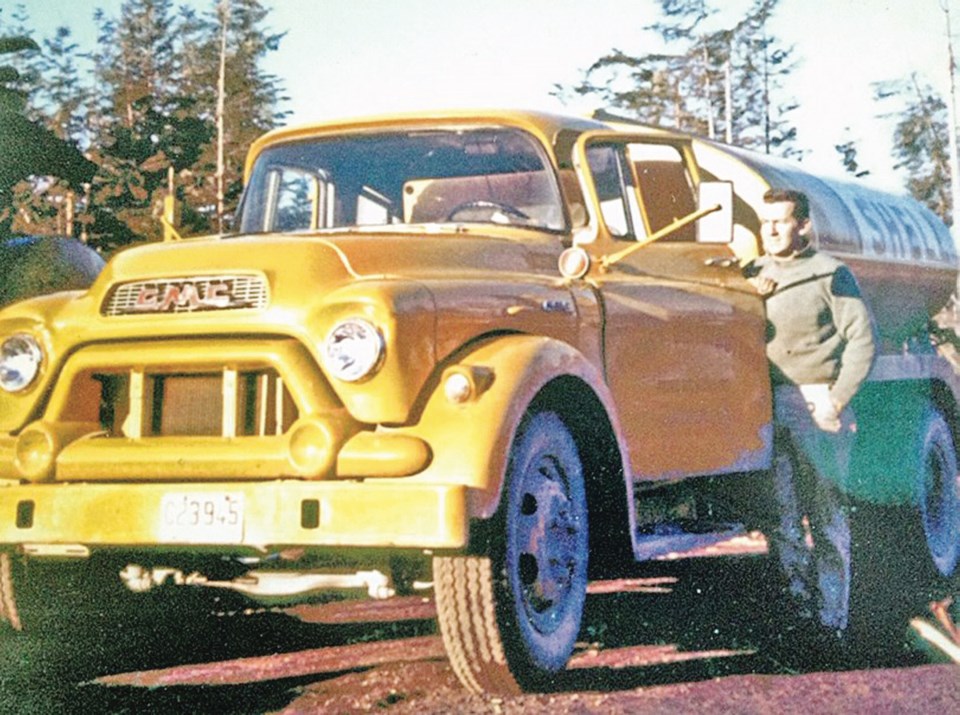
In Vancouver, they heard of work in Port McNeill, arriving in June 1956 at what was then a logging camp of 120 workers who lived in bunkhouses.
On that first day, Furney walked along the beach, stopped to sit on a rock and looked at the view. He said to his friend: “You know, I think a guy could settle down here,” James said.
Furney later purchased a lot facing that rock and built the family home on it.
Port McNeill was “everything he wanted in a community. It was everything he wanted in his life,” his son said.
The friends started working in the forest sector, professing to be experienced Irish loggers (not true), but didn’t last long as chokermen, James said.
Furney drove logging and mining trucks and took on a side job covering ore piles with tarps because it came with a one-bedroom cottage, which became the family’s first home.
He built a business supplying fuel and explosives, opened a gas station and built townhouses.
James said: “He put himself in front of opportunity. He said ‘yes’ when others would have said ‘no.’”
Furney ran for the Social Credit party and later as a Liberal, but was unsuccessful at the provincial level.
As mayor, Furney rallied citizens and businesses for community causes.
Humour and creativity were hallmarks of a Furney campaign. In 2005, he beat rival Port Hardy in obtaining the world’s largest burl, believed to weigh almost 30 tonnes.
How did he get that monster to Port McNeill?
Furney mounted a top-secret operation — to prevent it being “burl-napped” — that saw Western Forest Products truck it to Port McNeill on a day that then-Port Hardy mayor Harry Mose was at a conference in Victoria.
Given the news at the conference, Mose joked: “Oh, for Pete’s sake. Furney got me again. They weren’t supposed to move it for a few days yet. We were going to try and stop the truck.”
In pursuit of a highway to Port McNeill, Furney staged a limerick contest, drawing 300 entries, to win notice of politicians in Victoria. MLAs joined in the fun, speaking in limericks in the legislature.
In 1968, Furney hit on the idea of flying in the Victoria press gallery for a game of newly invented “pothole golf,” where contestants used shillelaghs to club balls along a crater-filled road. The press gallery won and wrote about Port McNeill’s plight.
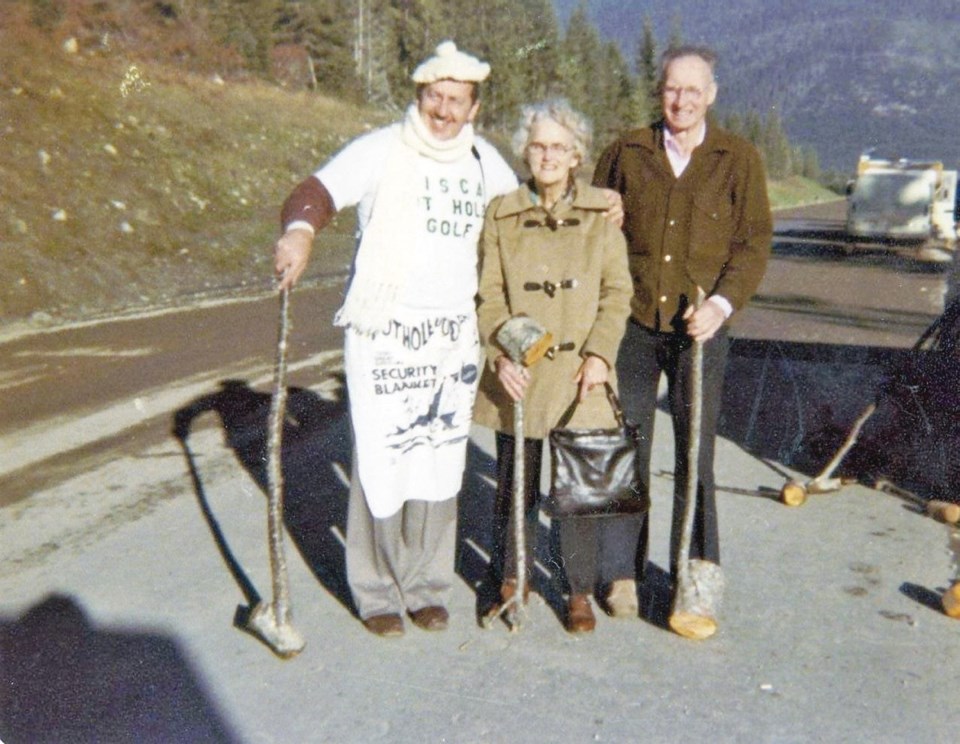
Furney was invited to speak to the provincial cabinet for 10 minutes. He talked for one hour and 15 minutes.
When Port McNeill Hospital was built in 1979, “he made sure that the design was such that every one of the 10 rooms faced the ocean,” Ackland said.
In 1983, a state-of-the-art rubberized track was installed at the high school. “Because Gerry Furney said: ‘Wouldn’t it be nice to have a track,’” she said.
Again, local industry pitched in to construct the track, one of only two in B.C. at that time, she said.
In 1994, Furney feared a forestry land-use proposal prepared for the government would wipe out jobs and threaten the north Island’s economy.
His response to the plan became a well-known quote in B.C. He said the proposal was written in “Never-Never Land by unrealistic, out-of-touch environmental theorists, who have never had rain in their lunch-buckets.”
Furney was one of the leaders of that battle and took part in one of the largest protests ever in Victoria. Opponents packed the legislature’s lawn and logging trucks lined the streets.
When former B.C. cabinet minister Rafe Mair slammed the fish-farming industry in 2003, Furney came to its defence, inviting Mair to tour a processing plant in nearby Beaver Cove where 130 of the townspeople were employed.
Ackland said that it was not as though Furney was not an environmentalist, but “he understood the balance. He understood that families needed good-paying jobs. They needed to put food on the table and that was important to him.”
Former Saanich mayor Frank Leonard had a long-standing friendship with Furney. Leonard was on the Municipal Finance Authority for two decades, chairing it for 15, and Furney was a trustee during those years. The two were active in the Association of Vancouver Island Municipalities and with the Union of B.C. Municipalities.
Behind Furney’s folksy, small-town manner, “he was as sharp as they came. He could sit at a board table with anybody and carry his weight,” Leonard said.
“He was known to all premiers. If he was in the room, a premier would go out of the way to find him.”
Upon learning of Furney’s death, Premier John Horgan said on Twitter: “He was a local giant who will be much missed. We shared a birthday and Irish ancestry.”
Leonard said that as a champion for resource towns, Furney “was as loved in Peace River as he was in his hometown.”
Sharon Hartwell, the Union of B.C. Municipalities second vice-president in 2008, wrote at the time that Furney, “worked tirelessly to ensure that forest-dependent communities were represented when provincial decisions were being made with respect to land use-resource designations.
“His advocacy work extended to the international stage, where he served as a spokesman for B.C. forest communities.”
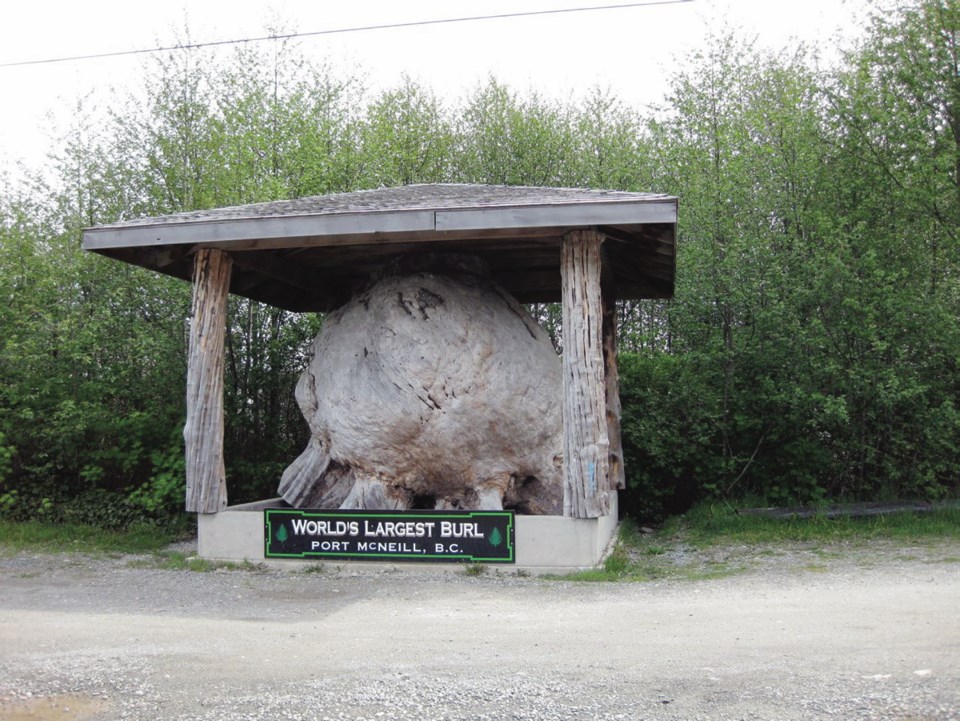
Furney assisted B.C. in setting up the Community Charter in 2003, Hartwell said. The charter is relied upon by all municipalities and covers such areas as municipal authority, council accountability, procedures and more.
Craven, the Municipal Financing Authority’s executive director from 1984 to 2000, reunited with Furney at that agency. He described Furney as a “master organizer.”
“He could smell hypocrisy from many, many miles away and act accordingly.”
The Mount Waddington Regional District said in a statement this week: “During his lengthy years of public service [Furney] initiated innumerable projects that have had a lasting benefit to the Town of Port McNeill and the Regional District. We will greatly miss his wisdom, humour and steadying advice.”
On a lighter side, Furney played the trombone — something he learned in Ireland — and he loved Dixieland jazz, his son said.
It was his connection to a band that gained him entry to a New Year’s Eve dance while in Ireland on a visit. And it was at that dance that he met Carmel, who later joined him in Canada, James said.
Furney wrote poetry in his book titled Popcorn for Breakfast. The poem of that name was about driving children to early-morning hockey practice before the concessions were open: “I sit in the bleachers watching them play, eating cold popcorn for breakfast.”
The north Island has another Furney in elected office now. James is an electoral area representative on the Mount Waddington Regional District.
Reflecting on her friend, Ackland said: “He would look at me and smile and say: ‘Oh, we’ve been so very lucky.’ I’d think: ‘Yup, we were very lucky that you decided to call Port McNeill home.’ Because he truly had a vision for the North Island.”
Furney’s family has asked in lieu of flowers that donations be made to the Royal Canadian Legion’s Port McNeill Branch 281. A service will be held in the spring, with details announced on the town’s Facebook page.
Flowers can be left at the foot of the town’s clock. It was dedicated to Furney for “Time Well Spent” in 2016, the community’s 50th anniversary.
